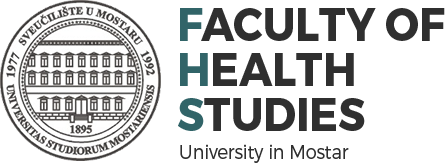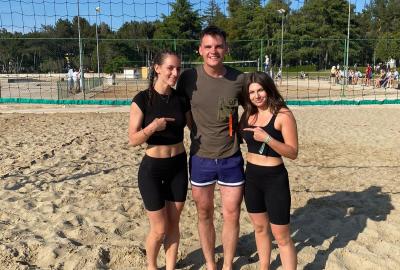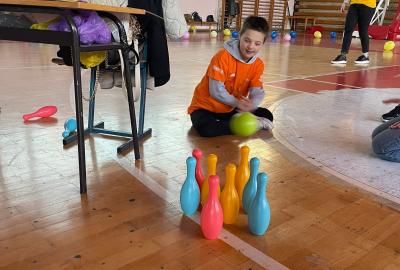Competences acquired after graduation
A physiotherapist (referred to as physical therapist in some countries) is a health worker who works with people of all ages in order to sustain and promote health and replace functions and independency (WCPT, 1995) when individuals have problems caused by physical, psychological and other disorders, as a handicap (World Health Organization, 1980).
A physiotherapist is trained for participation in the process of patient evaluation and therapy, as well as in areas of prevention and evaluation. He/she has the ethical and legal responsibility to gather all information needed for planning and conducting a successful treatment (Canadian Association of Physiotherapists, 1986.).
A physiotherapist provides services in private and the public sector, in ambulance services, hospitals, rehabilitation centres, social care departments, clinics, kindergartens, schools, sport and recreational centres, work organizations and in private homes.
A physiotherapist participates in programs of discovering and prevention through research, organizing activities of patients, recreation and sport program counseling, production of program for industry and agriculture workers.
A physiotherapist conducts diagnostic procedures which require his/her knowledge and skills, conducts specific physiotherapeutic evaluation for a better diagnostics.
A physiotherapist plans and improves a therapy program, in which he/she applies different physical techniques.
With his/her communication skills and knowledge of psychological factors, he/she helps growing positive relationships with the patient and his family in order to reduce anxiety and build motivation which is necessary in the therapy procedure. He/she communicates with members of different health, therapeutic and rehabilitation teams.
Participation in research and education (undergraduate students and other experts in health and other departments).
A physiotherapist works according to professional and ethical principles of a health worker in compliance with the code of ethics of the National Association of Physiotherapists, and with the defined standards of physiotherapeutic practice.
Education goals
Through education, a physiotherapist is trained for: evaluation of patient's status and the need for a physiotherapeutic treatment, conducting kinesimetric and other measurements for diagnosing functions of the locomotor system, planning and programming physiotherapeutic procedures, application of special physiotherapeutic procedures according to patient's needs, evaluation of treatment efficacy, participation in the education of physiotherapists, participation in physiotherapy research, team work training, continuous own education and improving own profession.
The goals of study programs are theoretical and practical education of students for individual professional work in health departments, doing research, participation in the teaching process at undergraduate study and being a member of a team.





































